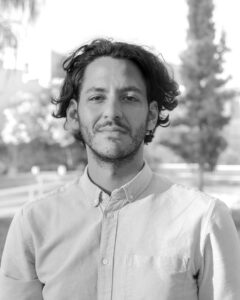
Stefanos Papadosifos
Ecogenia Program Manager
Two years, that’s how long it took our team to implement our first pilot program. Almost two years of volunteer work before being able to be hired, and endless planning and preparation work for what ended up being two months of remarkable experiences.Since the day we started conceptualising a trail building/ecotourism pilot in the beautiful region of Vardousia in Fokida, I had imagined what it would be like being there, what the program would look like, and most importantly, how would our first-ever cohort group be. All I could do was plan and imagine. The first time I realised that this was really happening was during the interview process for the selection of the cohort members. The time between the interview process and the start of the program was a little less than a month. I tried to put myself in their position and understand their expectations for such a program, but honestly, I had no idea what to expect. As the program manager, I wanted to arrive at the pilot location at least a week prior in order to settle down, meet the locals and prepare for the arrival of 7 young Greeks that would spend the next two months learning about ecotourism and revitalising old hiking trails. A little about the location — The region is called Vardousia, and the two villages that we are operating are Alpochori and the other is called Zorianos. The two villages are 5 minutes apart by car.
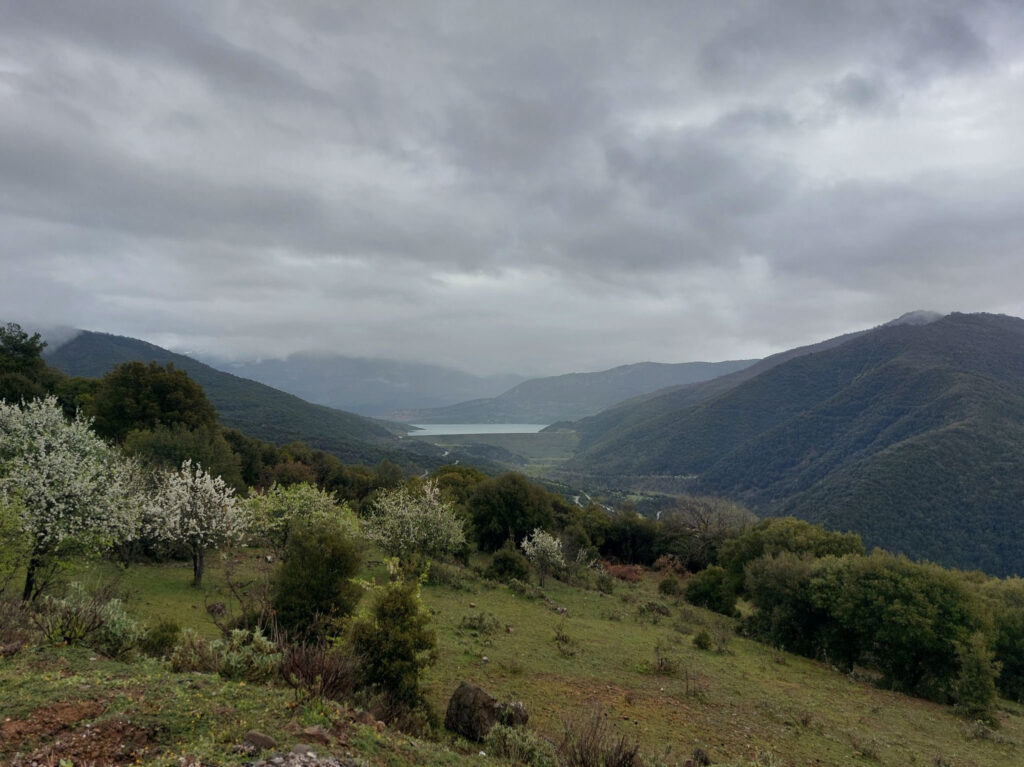
I arrived at Zorianos on April 15th, two weeks before the start of the program. My arrival coincided with Greek Easter; both villages were full of families that had left the busy life of Athens and came to escape and enjoy the festivities, but that’s not the norm. Zoriano has less than 20 permanent residents, Alpochori even less, the rest come and go, and most come only for holidays. The reality is that both villages, in less than 10-15 years, will be dead. With no jobs and no real infrastructure, it is very hard for anyone to consider a move here, let alone raise a family. For a moment, I pondered and asked myself why we were here. Why are we bringing 7 young Greeks to build trails at a place where even the people that are from here don’t visit that often? Despite all this questioning, a sense of optimism came along that we can be the change this place needs . Developing ecotourism might be one solution. Greece is known as a tourist destination throughout the world, primarily because of its islands and pristine beaches. Not many people know that Greece is covered by mountains in 80% of its landmass, and that gives us a unique opportunity to develop sustainable ecotourism in such regions. Ecogenia’s program can provide that, community-based ecotourism. And the big day comes, April 29th, when the group is going to meet for the first time in person. I drove down to Nafpaktos, which is the nearest city to us, and picked up the group. I had met them before, but it’s very different meeting someone online versus meeting in person.
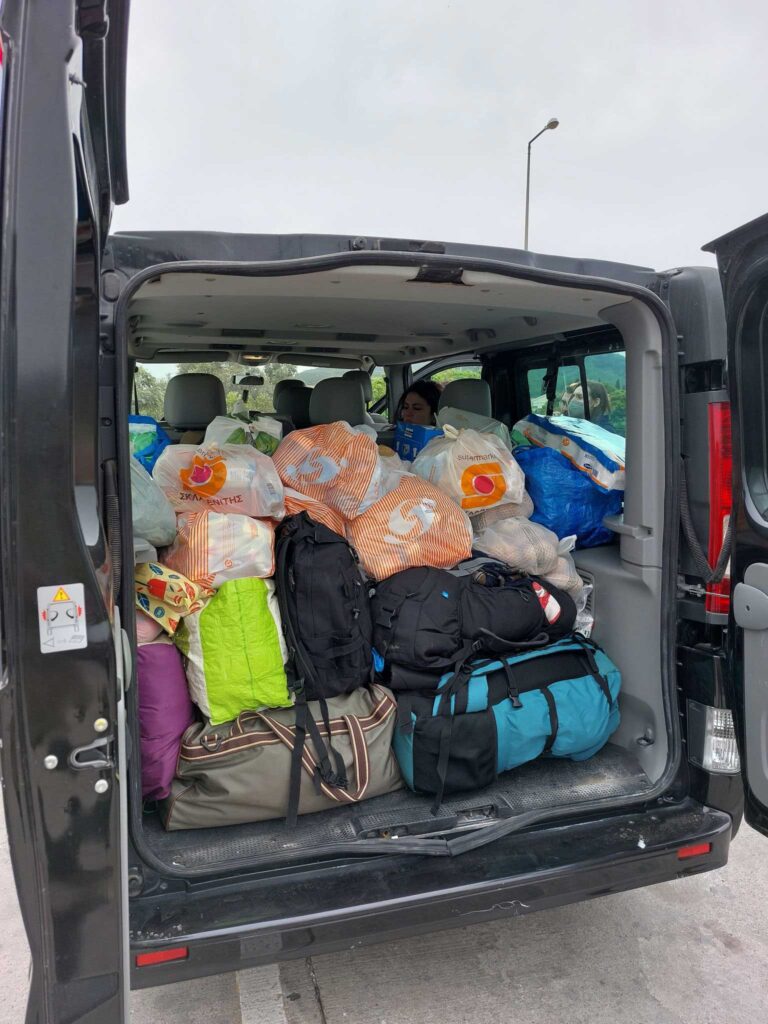
The group that we managed to bring together had such diversity and strong personalities that even I was amazed at how we managed to bring them together. The first two weeks of the program were a bit overwhelming and exciting at the same time. Everyone was trying to adjust to the new environment and eager to see what was lying ahead for the next two months. Before we started building trails, we had designed a two-week training program that we hoped would give the group a better understanding of what we were trying to do.
The first week was dedicated to ecotourism training, good practices and examples in Greece, and how a small community can come together and offer an alternative, more sustainable form of tourism without overexploiting the community and its natural environment.
Another very important aspect of the training was trail safety and tool handling. We had the pleasure of having a very good friend from Litochoro, an experienced mountain guide, and with his help, we went over first aid training and how to handle difficult situations while on the mountain. The second week was more theory-oriented, and along with our fantastic partners at Youthmakers Hub, we created the nEU Citizenship> program, which advocates Civic engagement as a good practice to promote sustainable development and digitization. The aim is to empower youth and promote an active lifestyle oriented towards participation in democratic life.
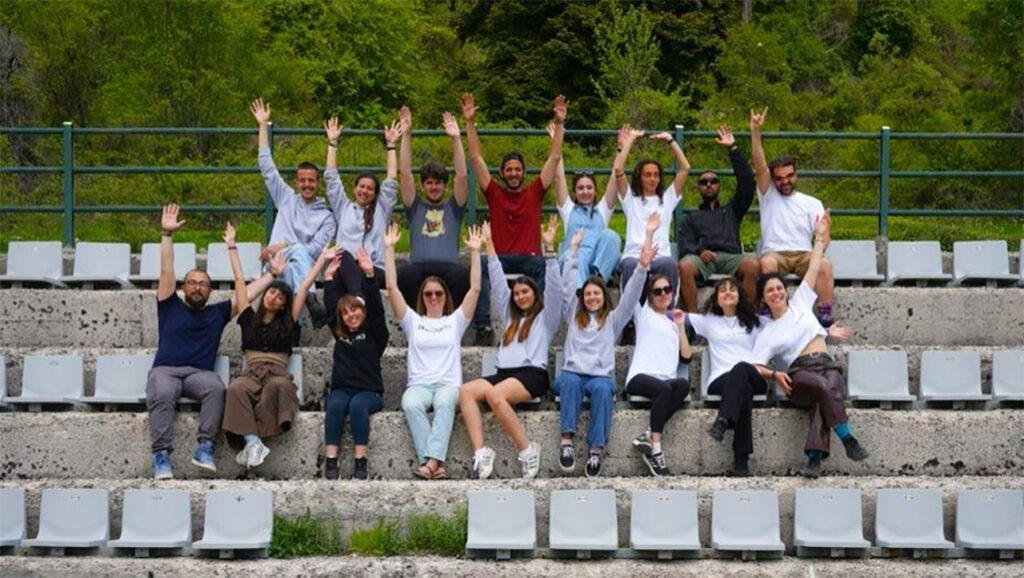
Even though two weeks is not a long time to make any conclusions, you could sense the difference. The locals were eager to help us, and we were eager to start building trails.
Trails
The trail building was not exactly the opening of brand new trails but rather the re-opening and revitalization of old, historical trails that had been used extensively by the locals in past years/decades but had been abandoned recently as the community lacked resources to keep maintaining them. What we consider now a nice hike/walk through a trail was part of everyday life in the past. The locals used these trails to move their cattle, bring supplies from the nearest city, water their fields, and in many cases, bring gravel and stones from the river to build houses and churches. The day finally arrived, and we met at the village square for what came to be our morning routine, morning stretching and going over the safety rules.
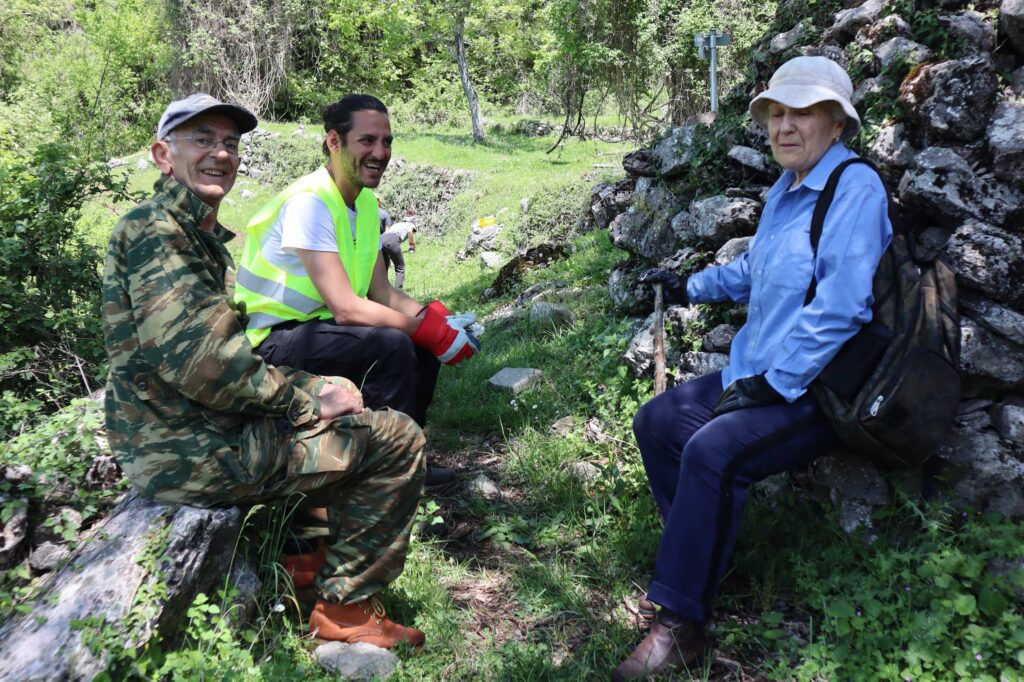
During the trail-building weeks, all my nervousness and questioning went away. I love hiking and discovering new places, but I have never done it as part of my job. Being responsible for 7 people and making sure I had made the correct planning of trails made me a little anxious but the group managed to bond and work together beyond my expectations. Moreover, many locals joined us; some brought us food, and others volunteered their time to help open the trails. A sense of community was building.
We accomplished a lot in the eight weeks of trail building. We managed to connect the two villages via a trail, built two small wooden bridges, cleaned the river from trash, and overall opened more than 5.5 kilometers of trails. But the most significant accomplishment was not that of the trails; it was the human interaction, the personal relationships, the laughter, the tears, and the bonding with the locals. Living in a place for two months and interacting with the same people every day is very different from visiting; you satisfy that intrinsic curiosity about how life is over there and build long-lasting relationships.We understood that without a sense of community and being civically engaged, our society cannot get out of our current predicament. Most importantly, the locals understood that as well. When we as people come together, even in the smallest setting, we can accomplish a lot.Moving forward, we are planning to come back to Dorida next year in May for another two months to continue our work, and will do so as well the following year. I learned a lot and gained memories and experiences that I wouldn’t change for anything. I learned from my mistakes and successes, and I’m sure that the next pilot will have an even bigger effect on the community and us.
Learn more about the scope of our impact in Dorida, read our impact report in English or Greek. And hear directly from our cohort members and the Dorida community in our Dorida Ecotourism Pilot Impact Video.
